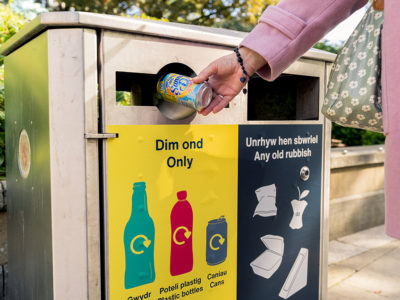Horse charity Redwings and the RSPCA have declared that the number of abandoned horses without I.D in the UK is rising year on year. In 2009 the number of cases was 160, by 2011 this number had risen to 450.
The next passport and micro-chipping event in Cardiff will take place in the summer, 2013.
The full legislation about equine I.D and the penalties for not complying can be found under The Horse Passports Regulations 2009.
Why is it necessary for horses to have their own identity documents?
Towel? Check. Toothbrush? Check. Passport? Check. Your passport plays a vital role when you travel abroad and you probably make sure it is in your bag every five minutes before your departure.
As humans, forms of identification that contain our name, date of birth, address, nationality and a more-than-unflattering headshot photograph are commonplace. But did you know that horses also have to have a similar document even if they are not travelling to another country?
“The horse passport is a document very similar to a human passport,” says Gloria Garrington from Cardiff Riding School. It is a small booklet that contains a description of the horse, its age, name, details of its breed and also its owner’s details. It includes a pencilled diagram of the horse’s shape or ‘silhouette’ on a chart and also detailed drawings of certain parts of their bodies showing any markings, scars or blemishes. It is so detailed in fact that the horses ‘whorls’ are also precisely drawn – these are the patches of hair, usually on the horse’s face or stomach, that grow in the opposite direction to the rest of its hair.
The passport includes the horse’s micro-chip number and a list of any medication or vaccinations it has received. It should be kept with the horse’s rider or owner at all times when they are with the horse, unless it is in a stable or grazing.
The need for horse I.D
Two of the most serious reasons for why horses need passports are that a horse can be declared as ‘intended’ or ‘not intended’ for human consumption in one part of its passport. Certain medications or injections a horse receives can prevent the animal being eaten after death. The other is to prevent stolen horses being sold on to new owners, as someone buying a horse should always ensure that the horse they are taking on has a passport. Gloria says, “Selling a horse is like selling car, it should have all the relevant and up-to-date documentation with it.”
Micro-chipping is equally important as passports when cases of horse abandonment are considered. Micro-chips enable the horse to be traced back to its owner if it is found stray.
Horse I.D in Cardiff
At the beginning of November this year Cardiff Council held its first day long event in Tremorfa Park in conjunction with the British Horse Society to offer horse owners micro-chipping and passports for a discounted price. Jackie Hotchkiss from Cardiff Council Trading Standards says, “The event was a success and we have had a lot of interest and enquiries about when the next one will be.”
Early this year the BBC released a report explaining that abandoned horses and fly-grazing were a major problem in South West Wales. Cardiff Council’s Cabinet Member for Environment agreed that there was an issue and proposed that an event such as the drop-in scheme held in Tremorfa Park would serve to improve this type of situation by making sure more horses are micro-chipped and given a passport so that their owners can always be traced.
Jackie explains, “There is a great need for education and advice on the matter of equine I.D in Cardiff. More than often the only thing preventing horse owners getting their horses micro-chipped or passports is the cost.” Yet, there is a potential £5000 fine if your horse is found to be without its essential I.D.
Unhappy horse owners
Alt.Cardiff spoke to several horse owners to hear their stories regarding horse I.D measures. Beth Tuckett said, “I sent my horse passport off to register a change of ownership and it took six months to return, which was far too long. What if I had been asked for it?” Abi Bottomley said, “In my opinion the passports are too easily forged, so it is vital that your horse has a micro-chip as well.” However, Barbara Toogood’s horse had to be micro-chipped three times at great cost as each time the vet scanned the horse, the microchip could not be picked up.
Jess Winget also commented, “I’m concerned about getting my horse micro-chipped as I have heard of horses having to be put down as they treat the micro-chip as a foreign object in their bodies. That is the reason cattle are not micro-chipped and I don’t like to think of the risk.”
It seems that although horse passports and micro-chips are clearly required for many things, there are still holes in the system. Gloria Garrington does not see how horse I.D helps in the ways the council think they do. She says, “Horse owners who have the intention of recklessly abandoning them obviously are not going to get the horse micro-chipped or a passport. I think the best thing would be for the passports to be policed better. I have never once been stopped and asked to see my horse’s passport whilst moving my horse up and down the motorway in a horsebox.”
From this, it does seem that new, more efficient and tighter measures should be put into place to check that horse owners have the necessary documents for their horses, just like when we arrive at the airport.
Horse charity Redwings and the RSPCA have declared that the number of abandoned horses without I.D in the UK is rising year on year. In 2009 the number of cases was 160, by 2011 this number had risen to 450.
The next passport and micro-chipping event in Cardiff will take place in the summer, 2013.
The full legislation about equine I.D and the penalties for not complying can be found under The Horse Passports Regulations 2009.





